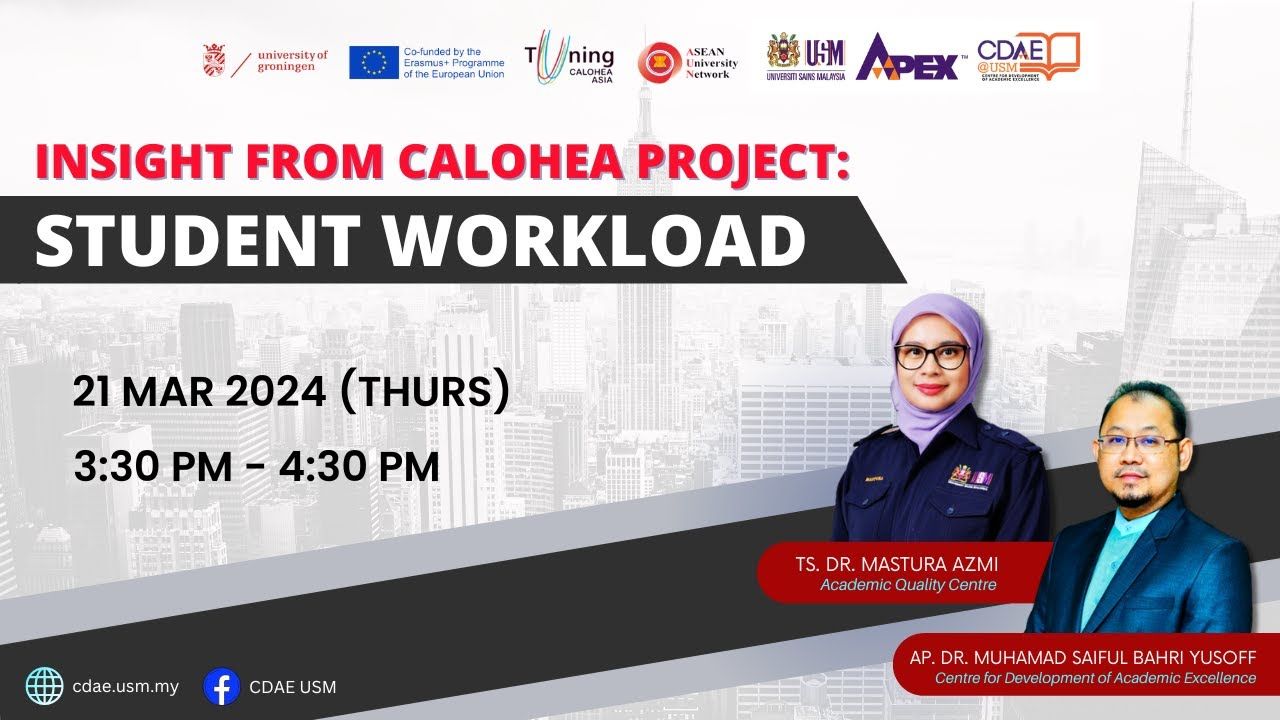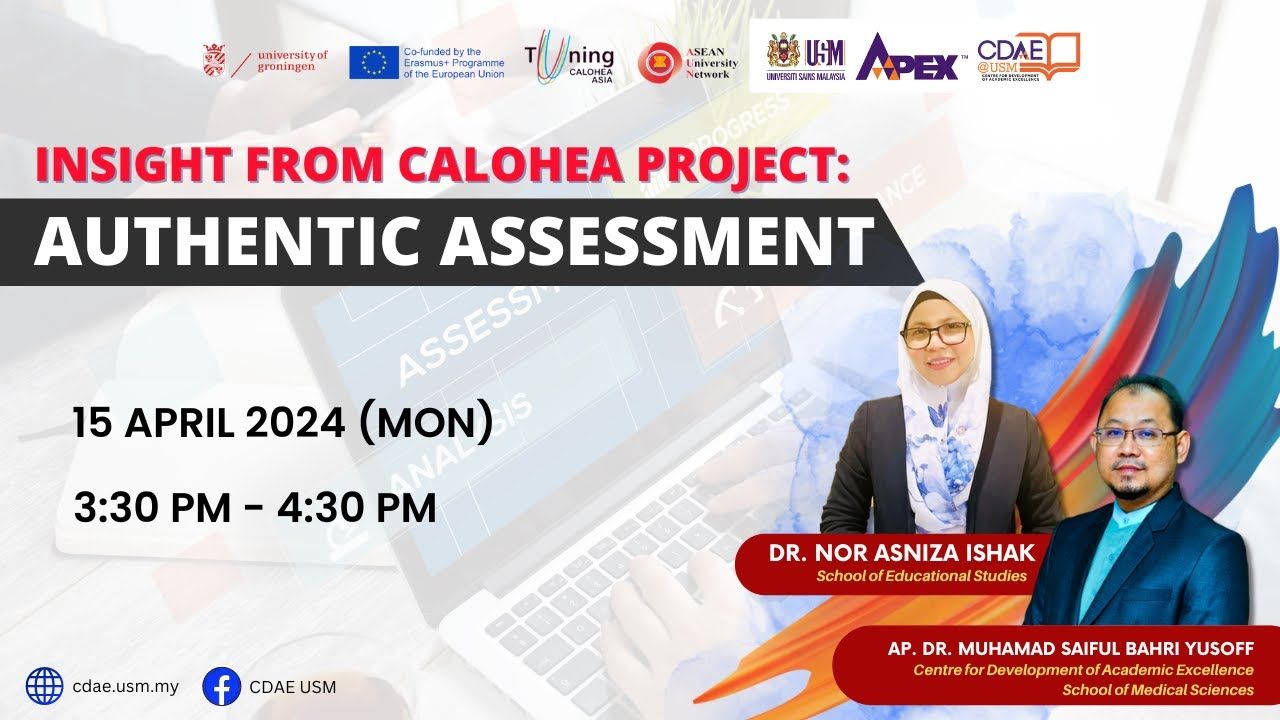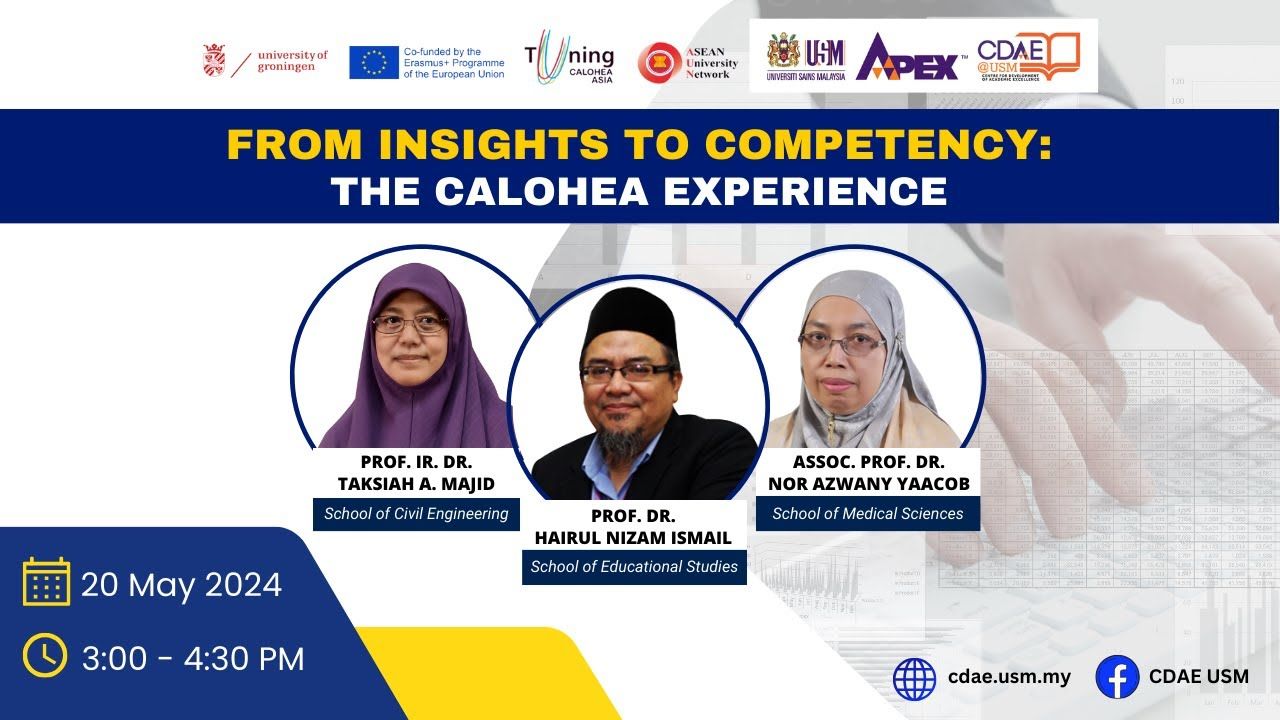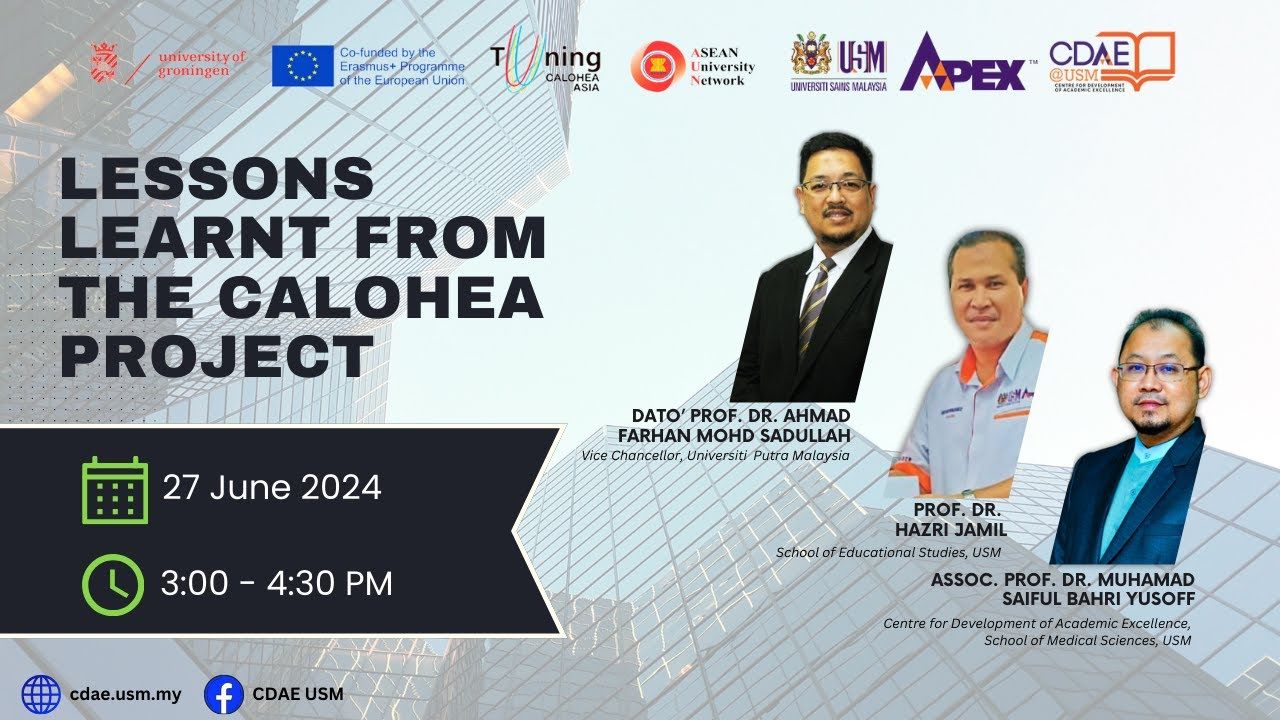CALOHEA Project

WEBINAR
One of the tools created by the CALOHEA Erasmus+ project participants in order to facilitate recognition of degrees and periods of studies both within the ASEAN region and between the ASEAN region and other world regions are Regional Subject-Specific Reference Frameworks.
A Qualifications Framework is a structure that allows us to classify different qualifications in a geographical area covered by the framework and establish a broad equivalence of qualifications (e.g. first cycle of higher education/undergraduate, etc.) across the region. This is done through describing what a learner will have developed in terms of knowledge, skills, attitudes, competences, etc upon successfully completing a particular level of studies.
Regional Qualifications Reference Frameworks seek to establish broad equivalence among qualifications offered in more than one country. Such frameworks are intended to be used as Reference Documents – facilitating recognition but not overruling National regulations or National Qualifications Frameworks. The ASEAN Qualifications Reference Framework (AQRF) and the European Qualifications Framework (EQF) could be two good examples here.
CALOHEA Subject-Specific Qualifications Reference Frameworks facilitate recognition through allowing to:/p>
- Clearly see which key dimensions must be addressed by each programme in the subject area;
- Establish equivalence between qualifications offered in different countries in terms of their level, regardless of how the qualifications are referred to in each of the countries;
- Express specialisation of a particular programme in terms of the sub-dimensions addressed;
- Compare the level of achievement aimed at for each of the sub-dimensions – in terms of knowledge, skills or responsibilities;
- Compare shorter periods of study as well – periods of study during which only particular types of knowledge, specific skills or capacity to perform particular responsibilities can be developed.
CALOHEA Regional Subject-Specific Qualifications Reference Frameworks state in a detailed manner what knowledge, skills, attitudes, competences, etc. are expected from graduates of a ARQF Level 6 degrees in Civil Engineering, Medicine and Teacher Education; & allow recognition across all the countries involved in the development of the Frameworks.
Looking for examples of authentic assessment tasks in Civil Engineering, Medicine or Teacher Education?
One of the tools created by the CALOHEA Erasmus+ project participants in order to facilitate recognition of degrees and periods of studies both within the ASEAN region and between the ASEAN region and other world regions are Regional Subject-Specific Reference Frameworks.
While authentic assessment is key if you want to prepare industry-ready graduates and make sure your students achieve complex learning outcomes, many academics believe that authentic assessment is very difficult, time consuming and even expensive to implement.
To show that this is not necessarily the case, CALOHEA experts from seven ASEAN countries have created compilations of Inspirational Examples - ranging from more daring options to those that every academic can easily introduce in their course, regardless of the class size and financial limitations.
Visit the CALOHEA website to consult or download the 3 compilations - one for Medicine, one for Teacher education and one for Civil Engineering
The CALOHEA Erasmus+ project is coordinated by the Tuning Academy of the University of Groningen (the Netherlands) and the ASEAN University Network and is co-funded by the European Commission.



